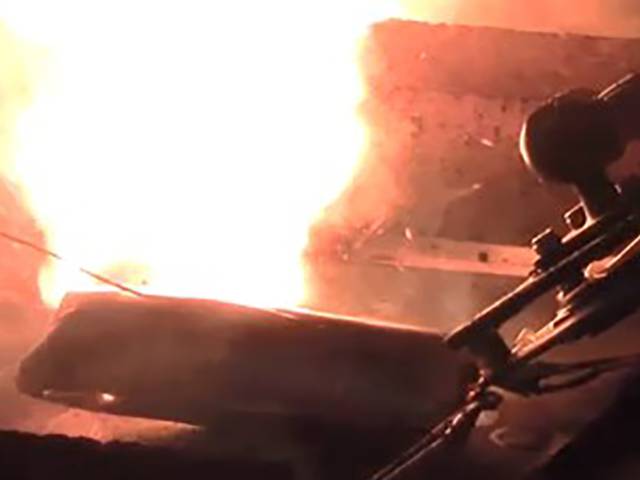The Battery and Energy Storage Technology (BEST) Test and Commercialization Center, owned by the New York Battery and Energy Storage Technology Consortium (NY-BEST) and managed by DNV, recently expanded its testing capabilities to include a Battery Cell Burn and Abuse Test facility at its state-of-the-art Rochester, New York-based test laboratory. The BEST Test and Commercialization Center (BTCC) has received ISO17025 accreditation for the expanded test capability per ANSI/CAN/UL 9540A – Test Method for Evaluating Thermal Runaway Fire Propagation in Battery Energy Storage Systems.
The new facility at the lab enables DNV to utilize a safe and controlled testing environment to test thermal runaway behaviour of battery cells under extreme conditions that could potentially lead to battery fires. These conditions include overheating, nail penetration and electrical abuse. This testing provides important information about cell safety, as well as the flammability and composition of the gases released during such events. This is crucial information for battery manufacturers to ensure the safety of their products and to meet the safety requirements sought by permitting authorities and customers before new battery systems are deployed.
The testing service enables developers and battery system manufacturers to verify that their systems are safe and ready for deployment. DNV’s burn and abuse services are customizable, and can be used during product development, to verify inputs for fire and explosion studies, or as a UL9540A certification test. DNV can test very large cells up to 300 Ah, which is not available in most other test centers. These tests are performed with a very fast turnaround, and, when combined with fire and explosion studies, provide comprehensive evaluations of new battery cells and systems for independent engineering reports.
One of the first customers to utilize the new capabilities at the BTCC was Arizona Public Services Company (APS). They conducted thermal runaway testing and gas and flammability analysis on large battery cells they plan to use in 663 MWh of battery energy storage system (BESS) installations. Daniel Clark, Energy Innovation Advisor for APS, said, “The excellent test capabilities and the quality of the personnel at DNV provided us with high confidence in the results. These tests serve as important input to ensure the safety of our BESS installations. It has been great working with DNV, not just the BEST Test Center folks conducting the testing, but also with the DNV Advisory staff that has supported us in developing our safety standards and executing reviews of safety design, explosion and flammability studies.”

“The wide deployment of battery storage systems is a lynchpin of the energy transition; DNV’s Energy Transition Outlook expects that storage capacity will increase by 160 percent over the next 30 years as we transition to an all-electric economy,” said Richard S. Barnes, Regional President, Energy Systems North America at DNV. “Ensuring battery safety will become even more important as they become more prevalent in our homes, businesses, and cars. The BTCC’s new facility will enhance the ability of battery manufacturers and project owners to ensure the safety of their products and projects.”









































